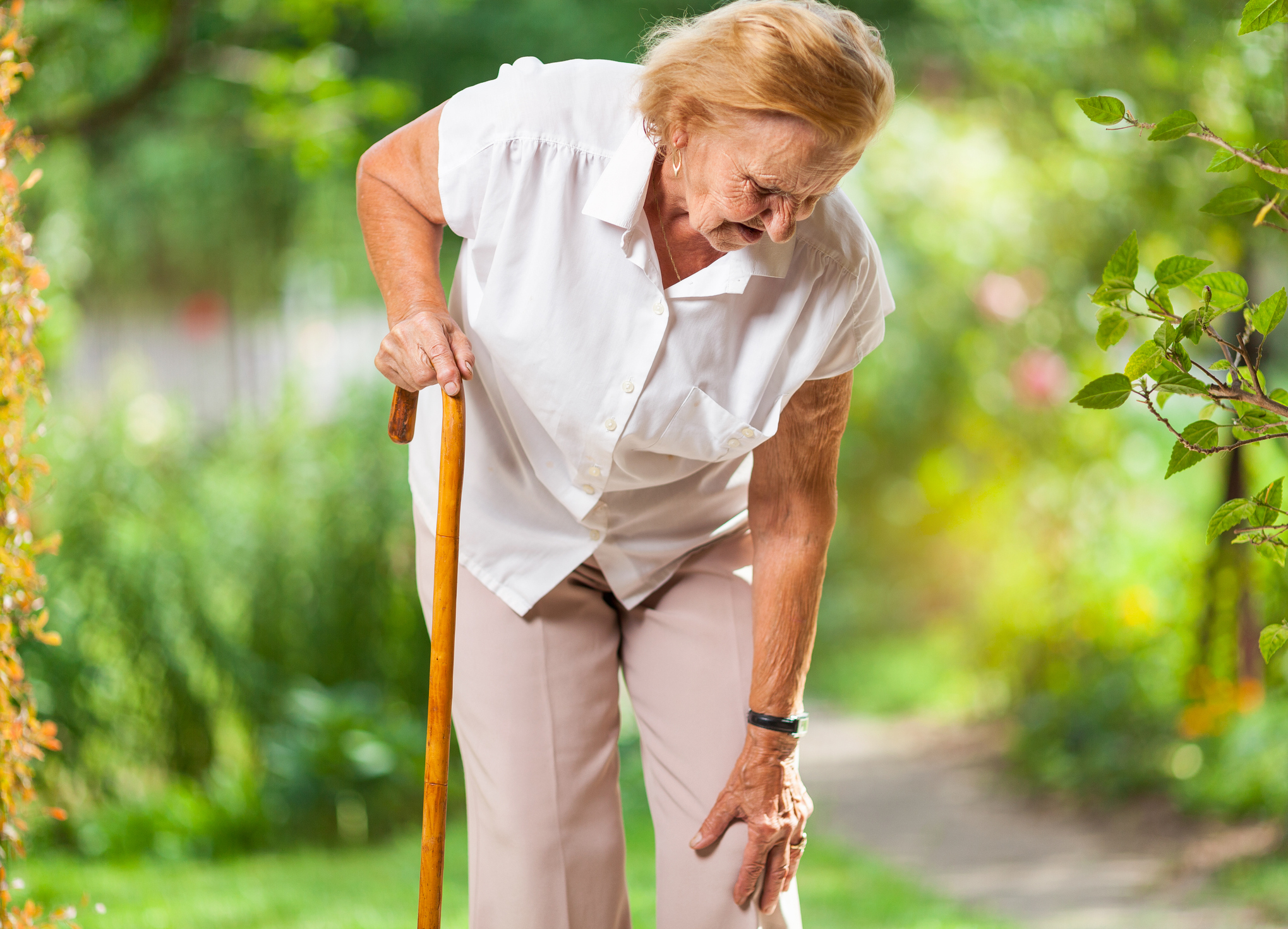
Senior joint pain can increase the risk of falls in the elderly.
The statistics associated with senior falls are startling. Falls are classified as the leading reason for injury in the elderly, and result in hundreds of thousands of hip fractures every year, along with the countless other injuries experienced. As prevalent as falls in the elderly are, the risk is more than doubled for everyone with senior joint pain due to osteoarthritis, according to research by the CDC.
Why Does Osteoarthritis Increase Fall Risk So Significantly?
There are a number of contributing factors:
- Pain. Senior joint pain as a result of arthritis leads to as much as an 85% higher chance of falling, based on the number of painful joints an older adult has and which joints are impacted. The pain will naturally cause older adults to avoid using the joints that cause pain, leading to muscle weakness and unsteadiness.
- Pain medications. While pain itself is enough to put older adults at a higher chance of falling, the very medications intended to help may cause harm as well. Prescription pain meds, especially narcotics, cause dizziness and drowsiness – both key reasons behind falls.
- Functioning difficulties. Joint stiffness and the mobility challenges it can cause change how an older adult walks and moves. Each step taken normally places 80% of our body weight onto one limb; however, older adults with arthritis pain will look for strategies to compensate for the pain that may cause, which can place them off balance.
How to Avoid Falls
Taking steps to avoid falls is crucial for those diagnosed with osteoarthritis. There are two important components to fall prevention:
- Increase physical activity. Research has shown that building muscle strength and improving flexibility and balance will reduce the chance that an older adult with arthritis will experience a fall. Speak with the doctor first, and then try these low-impact exercises:
- Aquatics
- Tai chi
- Weight training
- Yoga
- Stretching
- Walking
- Assess the home environment. A walk-through of the home can help uncover any potential hazards and make any necessary adjustments to improve safety. For instance, get rid of clutter/cords/obstacles blocking walking paths, add grab bars in the bathroom, make sure that sturdy handrails are in place alongside stairs, and add extra lighting.
Let Abby Senior Care, a trusted provider of award-winning at home care in Denver, Colorado and nearby areas, help even further reduce fall risk for an older adult you love. We’re available to perform a thorough evaluation of the house and to provide additional recommendations to further improve safety. We can also help with:
- Medication reminders
- Transportation to medical appointments, exercise classes, and anywhere else a senior would want to go
- Housekeeping and meal preparation
- Safe walking and transfers
- Picking up prescriptions and groceries and running any other errands requested
- Companionship to motivate older adults to stay active while remaining safe
- And much more
Email or give us a call at 303-699-8840 to schedule an in-home consultation and fall risk assessment, and to find out more about our home care in Denver, Colorado and the surrounding communities.
